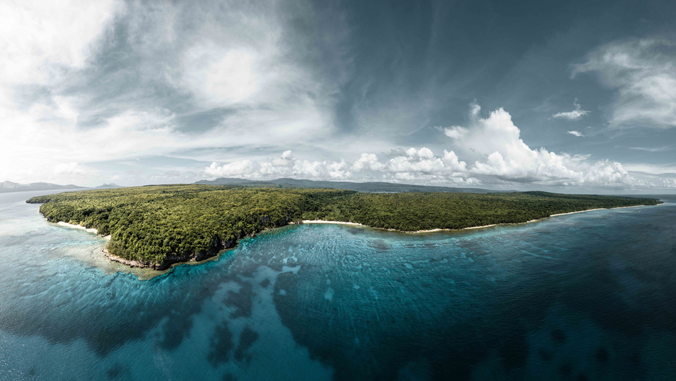
A lecturer at the University of Hawaiʻi at Mānoa William S. Richardson School of Law who represented the Republic of Vanuatu for the past three years, has helped the country secure a resolution by the United Nations General Assembly (UNGA) requesting an advisory opinion on climate change from the International Court of Justice (ICJ).
Passed on March 29, the resolution marks the first time in history that UNGA has adopted a resolution requesting an ICJ advisory opinion by consensus, and could have a major impact in the global fight against climate change.

Julian Aguon, the founder of Guam-based law firm Blue Ocean Law, has been part of the legal team since the inception of the initiative in 2019, when Vanuatu first announced its intention to seek an ICJ advisory opinion on the legal obligations of states respecting climate change. Vanuatu, a longtime leader in the global climate space, is one of the countries most vulnerable to the adverse effects of climate change.
“The long-elusive promise of climate justice is now closer in reach,” said Aguon.
Co-sponsored by more than 120 countries, the resolution asks that the ICJ weigh in on the climate crisis, clarifying among other things the legal obligations of states to address climate change and the legal consequences for states that have caused significant harm to the climate system. The intended beneficiaries of these proceedings are not states alone, but present and future generations as well.
Aguon is a human rights lawyer whose legal scholarship and law practice has been at the intersection of Indigenous rights and environmental justice. He has published numerous articles on international law and human rights and several books on colonization and indigeneity, including, No Country for Eight-Spot Butterflies. He has taught Pacific Islands legal systems at the UH law school for a decade.
The impact of the resolution is significant for climate justice, as the ICJ may establish a meaningful benchmark that could be particularly powerful for frontline communities in the Pacific region as well as globally.

